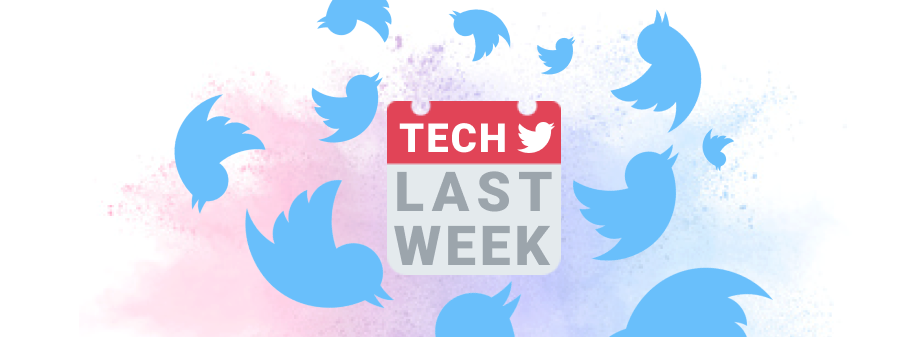👉 How Uber's Psychological Weapon Saved 100,000 Jobs
What happened on Tech Twitter August 16 - 23

Yo! ✌️ I’m Brett! I am a Product Manager and former Cognitive Science researcher. Social Studies is a semi-weekly newsletter for people building great products for humans. It includes recaps of what happened on Tech Twitter every week plus deep analysis using frameworks from Psychology, Economics, and the other Social Sciences.
🚨 Help me make Social Studies even better! Please fill out this quick survey for a chance to win a $25 Amazon gift card!
✨TLDR
⚔️Uber & Lyft were ordered reclassify drivers as employees - This has been a battle for years but finally a California judge pulled the trigger.
🚫They threatened to shutdown operations in CA - And it worked. The judge revoked the order that would have destroyed the ride-sharing business model.
🎩 We’ve seen this trick before - Uber’s classic city expansion strategy involves launching without legal approval, getting rides and drivers using the product and then arming them against legislators when Uber invariably gets banned (for a short time)
🧠Why it works so well - Three psychological principles: Status Quo Bias (people prefer the norm), Reactance (eliminating freedom makes people mad), Loss Aversion (people hate losing things more than they like gaining things).
⚔️ Uber & Lyft were ordered reclassify drivers as employees
A California judge ordered Uber and Lyft to reclassify their drivers as employees.
Why? As independent contractors, drivers don’t get any benefits. People want benefits. Seems simple enough.
Unfortunately, reclassifying as employees would erode a lot of the benefits that come from gig work - specifically the freedom and flexibility of drivers to set their own hours. Companies like Starbucks don’t even give employees this flexibility.


It also turns out that most drivers don’t actually want to be reclassified.


🚫 They threatened to shutdown operations in CA
In response to the judges order, Uber and Lyft announced they would shut down services for all of California.
While COVID has dramatically reduced ride-sharing volume, this move would have still put hundreds of thousands of people out of work. Naturally, drivers and riders alike were furious. Somehow even city officials who advocated for the legislation were mad.


Under pressure, the judge pulled back the order and Uber and Lyft resumed service.
All according to plan…


🎩 We’ve seen this trick before
This is a page taken right out of Uber’s classic city launch strategy:
Enter the market (break the law to do so)
Get drivers and riders onboard as fast as possible and loving the product (offer discounts and bonuses)
When regulators catch up and try to ban Uber, drivers and riders will take your side (see step 2).
Enable features within the Uber app to make it easier for users to voice their concerns to local officials.
What we saw last week was step 3 and 4 of this playbook.
Riders and drivers have been (mostly) happily using Uber for years, adapting their lifestyle around the convenience of the product.
By threatening to cancel service in CA, Uber and Lyft forced its users to imagine a world without the services. They naturally prefer the world with Uber. Here’s why:
🧠 Why it works so well
There are three psychological principles at work here:
⚖️Status Quo Bias
People prefer the current state of affairs over change, especially when the current state is seemingly better.
Change is hard. Any regulation changing the status quo has natural headwinds. Once people get used to a world with Uber (which is for the most part a dramatically better world), it becomes the status quo and is intensely hard to change.
🤬Reactance
People are averse to things that eliminate reduce choices or behavioral freedoms
Uber expands people’s freedom not only because it is an alternative option to taxis but because it dramatically increases people’s flexibility. For riders, Uber allows you to go anywhere whenever you want. For drivers, Uber allows you to make money whenever you want.
Legislation that takes away optionality from people (like banning or limiting Uber) is not something people will easily support.
😩Loss Aversion
People prefer avoiding losses to acquiring equivalent gains
Most simplistically, it’s hard to take away a benefit once you’ve given it to people. This is precisely why it has been so difficult for Republicans to eliminate Obamacare. Now that people have health insurance, they are averse to losing it.
This is at play when Uber is threatened to get shut down. People are averse to losing Uber so they protest.
It’s worth noting that plenty of tech companies throughout history have openly flaunted the law like Uber but lost despite having plenty of happy users subject to the psychological principles mentioned.
Napster is a good example. It failed because unlike Uber, it wasn’t great for everyone. Musicians (and record labels) suffered greatly from piracy - many even made public statements against piracy. The only group that has been significant negatively impacted by Uber has been the taxi medallion owners, which is a small and not respected.
📚 Further Reading


💉 Dopamine Hits







📚 Long Reads (click these)








🙏 Thanks
Sorry for the delay this week! So much exciting stuff going on keeping me busy!










